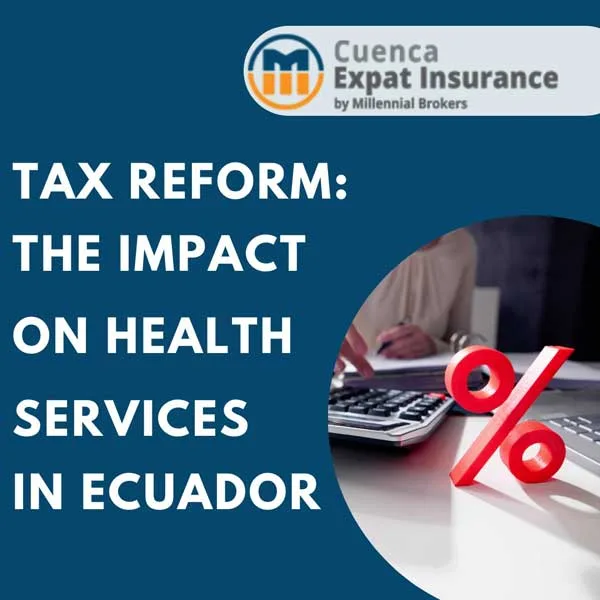Quito to host UN Habitat III, international conference on urban development
By Greg Scruggs
A lot can go wrong when hosting the whole world, as recent events have shown. Rio de Janeiro is contending with an outbreak of Zika virus on the eve of the Summer Olympics. Last year, Paris was the victim of a terrorist attack just weeks before the United Nations Climate Change Conference came to town.

Ecuador is focusing on reconstruction after earthquake.
And in October, all eyes will be on Quito for the U. N. Conference on Housing and Sustainable Urban Development, or Habitat III. The small Andean country has already had two brushes with natural disaster since agreeing to host the summit, which will bring an estimated 30,000 people to the Ecuadorian capital.
Last year, long-dormant volcano Cotopaxi awoke, sending plumes high into the air and raising concerns that an eruption could disrupt air traffic or coat Quito in a fine layer of ash. In April, a 7.8-magnitude earthquake struck the coastal region of Ecuador approximately 170 kilometers (110 miles) from Quito. Although the capital was largely unaffected, several isolated coastal communities were destroyed and at least 661 people were killed.
President Rafael Correa declared a state of emergency and announced that reconstruction costs would be in the billions of dollars. Shortly thereafter, he announced a series of economic measures including a sales tax increase, one-time garnishing of government wages and a new wealth tax on millionaires.

Cotopaxi Volcano in September 2015. Photo by Henry Leduc
With a drop in global oil prices, the Ecuadorian economy had been suffering even before the earthquake dealt it a severe blow. Last month, the central bank announced a 3 percent contraction in gross domestic product during the first quarter as compared with a year ago. Such figures do not include the period during the April earthquake.
The Ecuadorian Ministry of Housing and Urban Development (MIDUVI is its Spanish acronym), meanwhile, became the lead response agency, given the need to rebuild homes destroyed by the quake. In May, the ministry announced an “urgent need” to fill temporary positions for architects, engineers and social workers in the most affected province.
Habitat III Secretary-General Joan Clos visited communities damaged by the earthquake in June alongside MIDUVI’s head, Minister María Duarte. The ministry currently is overseeing reconstruction grants to more than 25,000 households, according to a July report from El Universo.
Meanwhile, MIDUVI is also the agency in charge of preparations for Habitat III, making the earthquake an exceptionally ill-timed drain on staff and resources. Although a MIDUVI spokesperson told Citiscope in April that the disaster would have “no impact” on the U. N. summit, the aftermath has indeed slowed down the country’s own preparations for Habitat III.
Focus on inclusion
One of the signature preparatory events for any country ahead of Habitat III is a national urban forum. UN-Habitat, the lead U. N. agency on urbanization, has been pushing countries for years to organize such gatherings as an opportunity to have a collective conversation about the state of cities in a given country in order to prioritize future objectives. With the Quito conference looming, such forums became especially pressing in light of the need to prepare a Habitat III national report that looks back on the last 20 years of a country’s urban development.

An elevated linear park in New York City.
Earlier this year, Ecuador announced a series of public conversations on topics like equity, sustainability and public space, culminating in a national urban forum to be held in Guayaquil, the country’s largest city, on 28 April. However, the earthquake came just days before, forcing the postponement of the forum for over two months. It ultimately was held on 12 July.
At the forum, Minister Duarte summarized the country’s Habitat III priorities as social exclusion and land-use speculation, the proliferation of informal land markets, spatial segregation and inequality in access to services, and pressure on natural areas, according to El Comercio.
“These are the problems that affect developing countries, the problems facing cities in Latin America,” she said.
Despite the delay, MIDUVI spokesperson Jonathan Viera does not think pushing back the forum affected the national dialogue ahead of Habitat III. He called the forum “the culmination of a process” that took place before the earthquake, with the Guayaquil event “the party” at the end after the hard work had already been done.
Julie Gamble is an Ecuadorian planner engaged as a consultant to help prepare the country’s national urban agenda. “Due to the earthquake, [the government has] rightfully put aside certain discourses that merit attention, such as Habitat III and national agenda building,” she told Citiscope. “However it is not something that is lost or trying to be covered up — it’s just been stalled in terms of the prospect of what it can bring to Habitat III.”
To her view, Habitat III is an opportunity for Ecuador to catch up with some of its peers in Latin America, which have more sophisticated legislation and policy around territorial development and urban forum. Whereas Brazil, Colombia and Mexico, among others, have had such laws on the books for years if not decades, Ecuador currently is considering a national law to that effect. That process, too, is moving slowly, as Correa partially vetoed the current version of the bill in early June.
“It just needs to be remembered that Habitat III in terms of national policy building is an event that has helped instigate and continue to build on a project and process that started the year before and plans to continue in the future,” Gamble said. “Habitat III will be a good moment to see how Ecuador can reflect as a country in terms of its urban development. However, the strategies that come from this process that have been stalled have a much longer life.”
________________
Greg Scruggs is a journalist who has focused on cities and culture, especially in Latin America and the Caribbean. He covered World Urban Forum 5, Rio +20, Caribbean Urban Forum 4, and World Urban Forum 7 for Next City, where he is a frequent contributor. In 2011, he was a Fulbright study/research grant recipient to Brazil in urban planning and development. During that time, he interned at the UN-Habitat Regional Office for Latin America and the Caribbean.


















